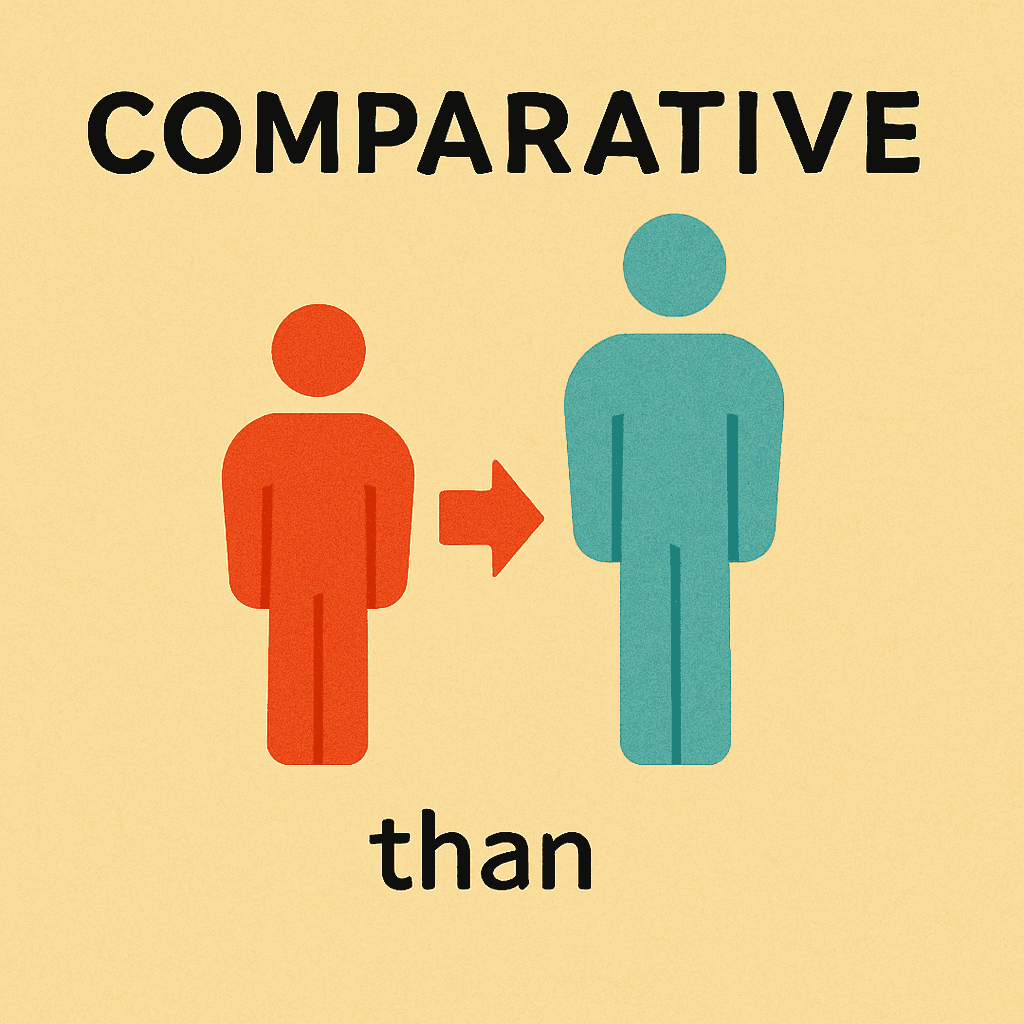Meaning
-
Comparative can function as both an adjective and a noun.
- As an adjective: relating to or based on comparison.
- In grammar: showing a higher degree of a quality, usually formed with -er (e.g., smaller, faster) or with more (e.g., more interesting).
- As a noun: the comparative form of an adjective or adverb.
Grammar and Usage
-
Adjective: describes something involving comparison.
- Example: a comparative study between Japan and the US.
-
Grammar (comparative form):
-
Short adjectives: add -er (taller, quicker).
-
Longer adjectives: use more + adjective (more beautiful, more expensive).
-
Structure: A is + comparative + than B.
- She is taller than her brother.
-
Common Phrases
- Comparative advantage
- Comparative study
- Comparative analysis
- Comparative form
- Comparative grammar
Collocations
- comparative + analysis/study/research
- comparative + advantage/disadvantage
- comparative + perspective/approach
- form the comparative of an adjective
Examples
- This is a comparative study of Asian and European economies.
- She is taller than her classmate. (comparative form of tall)
- Learning grammar often involves studying comparatives and superlatives.
- The company has a comparative advantage in technology.
- This book provides a comparative analysis of modern literature.
- "Better" is the comparative form of "good".
- Our new office is more comfortable than the old one.
- The research takes a comparative approach to education systems.
Synonyms or Related
- Relative
- Proportional
- Evaluative
- Analytical
- (Grammar) Superlative (as a related concept)
